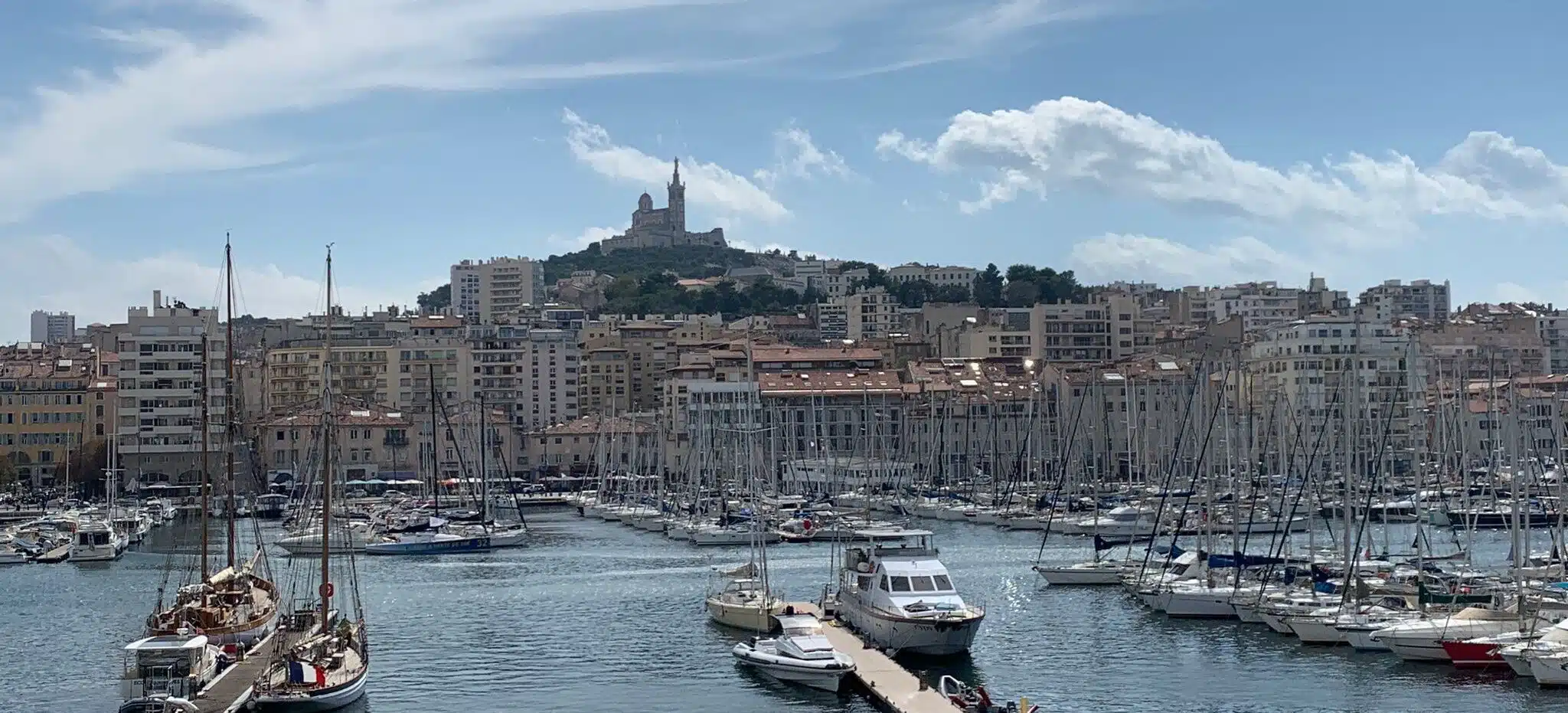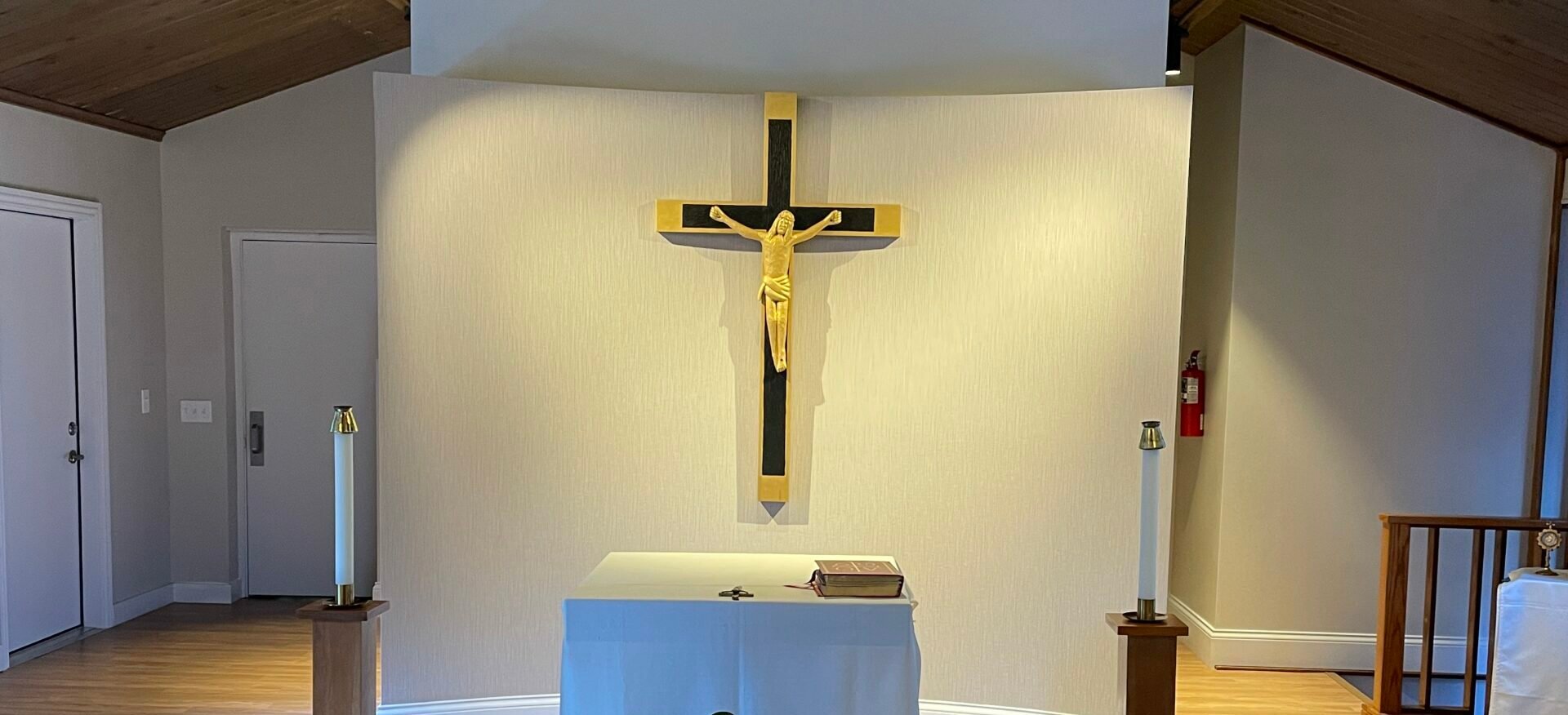Lisa Zengarini (Vatican Media)
Pope Francis closes the Mediterranean Meetings in Marseille by encouraging religious leaders and civil authorities to contribute to making the Mediterranean region a “foundation of peace” in the world, saying migration is not an emergency but a reality of our times requiring wise foresight.
The Mediterranean is a “mirror of the world” and “bears within itself a global vocation to fraternity, the only way to prevent and overcome conflict.” These words were among the highlights of Pope Francis’ long address on Saturday morning at the closing session of the week-long Mediterranean Meetings at the Palais du Pharo in Marseille, which was attended by the President of France, Emmanuel Macron.
For seven days, over 120 representatives of Churches and young people from the five shores of the Mediterranean Sea shared the current political, economic, and environmental challenges of the region, but also their hopes for the future, with a special focus on the current migration crisis.
Recalling the distinctive cosmopolitan character of Marseille, a “tide of peoples” that “has made this city a mosaic of hope, with its great multi-ethnic and multi-cultural tradition”, reflecting the many civilizations of the Mediterranean, Pope Francis articulated his reflection around three aspects that characterize the southern French city: the sea, the port and the lighthouse.
Mediterranean is ‘beginning and foundation of peace’
He noted that the intertwining of conflicts between different civilizations, religions and visions in the region we hear so much about today must not make us forget that what the Romans used to call mare nostrum (our sea) has been for millennia “a place of encounter: among the Abrahamic religions; among Greek, Latin and Arabic thought; among science, philosophy and law; and among many other realities.”
Indeed, the Pope said, echoing the words of the now Venerable late mayor of Florence, Giorgio La Pira, who inspired the Mediterranean Meetings initiative, the Mediterranean is “the beginning and foundation of peace among all the nations of the world”, a concentration of people, beliefs and traditions, similar to the Sea of Galilee where Jesus proclaimed the Beatitudes.
This “crossroads of North and South, East and West,” Pope Francis said, “urges us to oppose the divisiveness of conflicts with the coexistence of differences” and at the same time “brings together the challenges of the whole world” today, including climate change.
“Amidst today’s sea of conflicts,” he said, “we are here to enhance the contribution of the Mediterranean, so that it can return to being a laboratory of peace. For this is its vocation, to be a place where different countries and realities can encounter each other on the basis of the humanity we all share, and not on the basis of contrasting ideologies.”
Listening to the cry of the poor
For the Mediterranean “to return to being a laboratory of peace” in the world, amidst “today’s sea of conflicts” and resurgent “belligerent nationalisms”, it must listen to the cry of the poor, as Jesus did on banks of the Sea of Galilee. “We need to start again from there, from the often silent cry of the least among us” who are not numbers but faces, the Pope said.
“The change of direction in our communities lies in treating {the poor} as brothers and sisters whose stories we know, not as troublesome problems; it lies in welcoming them, not hiding them; in integrating them, not evicting them; in giving them dignity. ”
Mare nostrum has become a graveyard for migrants
Noting that “the sea of human coexistence is polluted by instability” even in European cities like Marseille, facing communal tensions and rising crime, Pope Francis once again insisted on the urgent need for more solidarity even to prevent lawlessness.
“Indeed,” he said, “the real social evil is not so much the increase of problems, but the decrease of care” for the most vulnerable: young people who are easy preys of crime, frightened families, elderly people, unborn children, people enduring violence and injustice in Africa and the Middle East, including Christians fleeing persecution, and, migrants losing their lives as they attempt crossing the mare nostrum, which has become a “mare mortuum (a dead sea, ed.), the graveyard of dignity.”
Pope Francis concluded his speech with an appeal for a better Mediterranean region.“ Be a sea of good, in order to confront the poverty of today in solidarity and cooperation,” he said. “Be a welcoming port, in order to embrace all those who seek a better future; be a lighthouse of peace, in order to pierce, through the culture of encounter, the dark abysses of violence and war.”
(For the complete article please visit pg/ Vatican Media)


